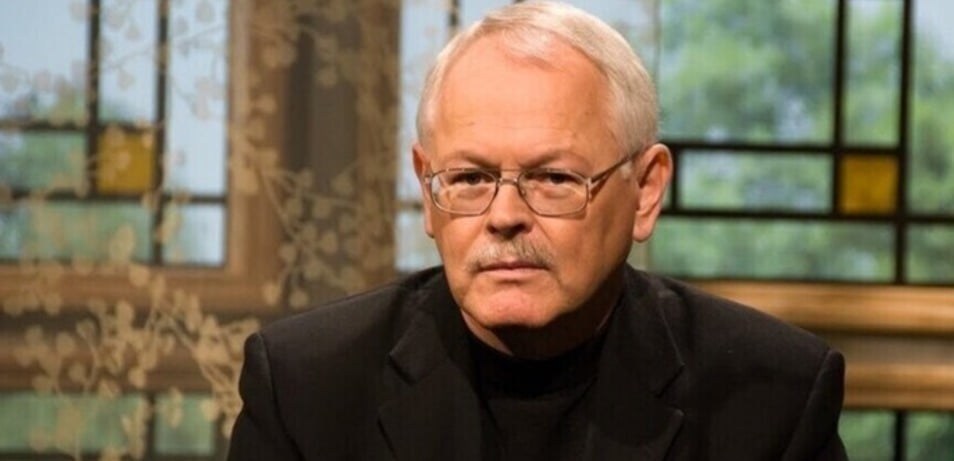Perhaps in its ideal form, innocence might be described as a human heart stripped of ego and lust, something akin to what James Joyce describes in A Portrait of the Artist as a Young Man when his hero, young Steven, sees a half-naked girl on a beach and instead of being moved by sexual desire is moved only by an overwhelming wonder and admiration.
More practically, the late Allan Bloom, in The Closing of the American Mind, suggests that, in the end, innocence is chastity, and that chastity is more than a sexual concept. For Bloom, there needs to be a “chastity” in all our experiencing, that is, we need to experience things only if and only when we can experience them in such a way that we remain integrated. Simply put, we lose our innocence when we experience anything in a way that “unglues” us in that it breaks down our wholeness in some way. And we can become unglued in many ways: moral, psychological, emotional, spiritual, and physical.
Bloom suggests that today most of us lack chastity and are already somewhat unglued. This, he suggests, manifests itself not first of all in the spiraling rates of emotional breakdown or drug and alcohol abuse, but, more commonly, in a certain deadness of soul that leaves us (in his words) “erotically lame”, without fire in our eyes, and without much in the way of the sublime in our hearts and in our dreams.
Moreover, adult innocence needs to be distinguished from the natural innocence of a child. For an adult, innocence no longer should be naiveté. It needs to be something that might aptly be called second naiveté or post-sophistication. There is a huge distinction between childishness, the spontaneous innocence of a child which is partly predicated on lack of experience and naiveté, and childlikeness, the post-sophistication of an informed, experienced adult who again has taken on the wonder of a child.
How did Jesus define innocence? He pointed at two things: the heart of a child and the heart of a virgin. Unless you have the heart of a child you will not enter the kingdom of heaven, and the Kingdom of heaven can be compared to ten virgins waiting for their bridegroom.
For Jesus, the heart of a child is one that is fresh, receptive, full of wonder, and which does not yet contain the hardness and cynicism that calcify inside us because of wound or sin. And for him, the heart of a virgin is one that can live in patience in the face of inconsummation without demanding the finished symphony, knowing that, as a child, many of the things that it deeply desires cannot be had just yet.
The child’s heart is one that still trusts in goodness and the virgin’s heart is one that does not test its God.
In her novel The Stone Angel, Margaret Laurence describes a woman, Hagar Shipley, who, one day, after overhearing a child call her an old hag, examines her face in a mirror and is surprised and horrified by what she sees. She scarcely recognizes her own face. What she sees frightens her. It’s a face that has not just grown older, it’s also grown cold and lifeless, devoid of eagerness and innocence. She wonders how this could have happened because she still imagines herself as an attractive, pleasant, wholesome person. But the mirror shows her the bitter truth. She has lost the child in her, lost her innocence.
This can happen to us all, and for periods of time does happen to all of us. We must never lose our desire for innocence. That would constitute one of the deadliest sicknesses of all.
Annie Dillard once wrote: “Innocence is not the prerogative of infants and puppies, and far less of mountains and fixed stars, which have no prerogatives at all. It is not lost to us; the world is a better place than that. Like any other of the spirit’s good gifts, it is there if you want it, free for the asking, as has been stressed by stronger words than mine. It is possible to pursue innocence as hounds pursue hares, single-mindedly, driven by a kind of love, crashing over creeks, keening and lost in fields and forests, circling, vaulting over hedges and hills, wide-eyed, giving loud tongue all unawares to the deepest, most incomprehensible longing, a root-flame in the heart, and that warbling chorus resounding back from the mountains.”
These words are a poignant reminder that one of the deepest underpinnings for a healthy (and happy) life is innocence, if not its achievement, certainly its desire. Just as a healthy child longs for the experience of an adult, a healthy adult longs for the heart of a child. To lose the desire for innocence is to lose touch with one’s soul. In fact, to lose one’s desire for innocence is to lose one’s soul, and to lose entirely the desire for innocence is one of the qualities of being in hell.

